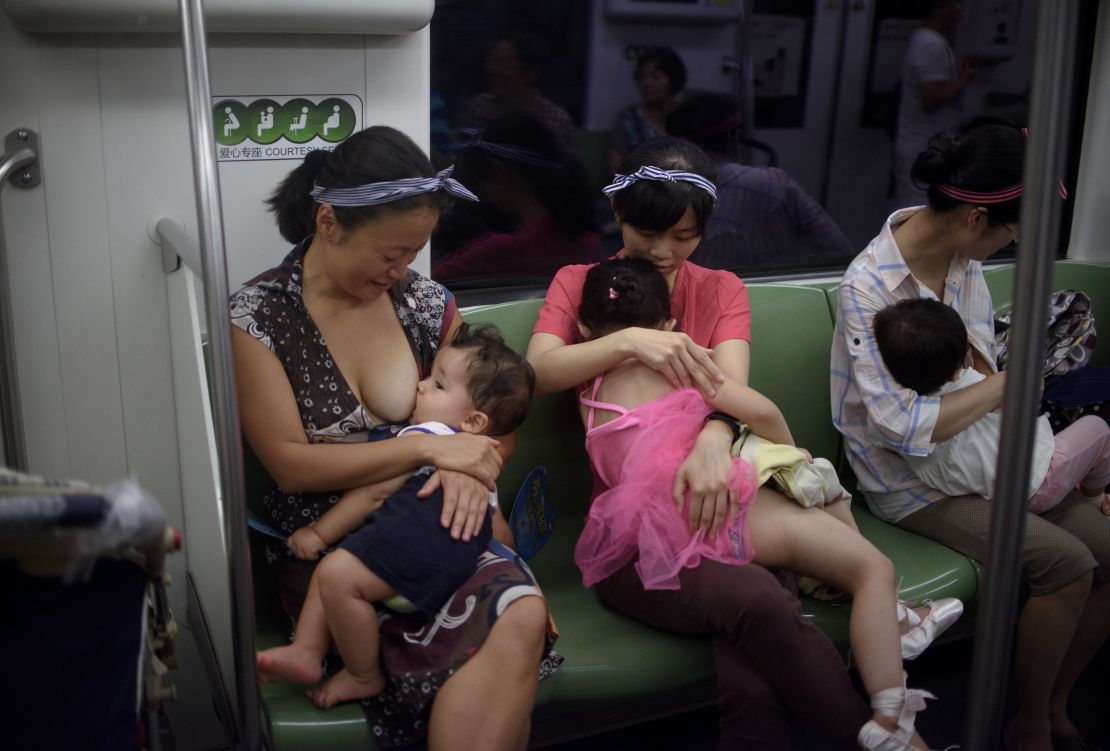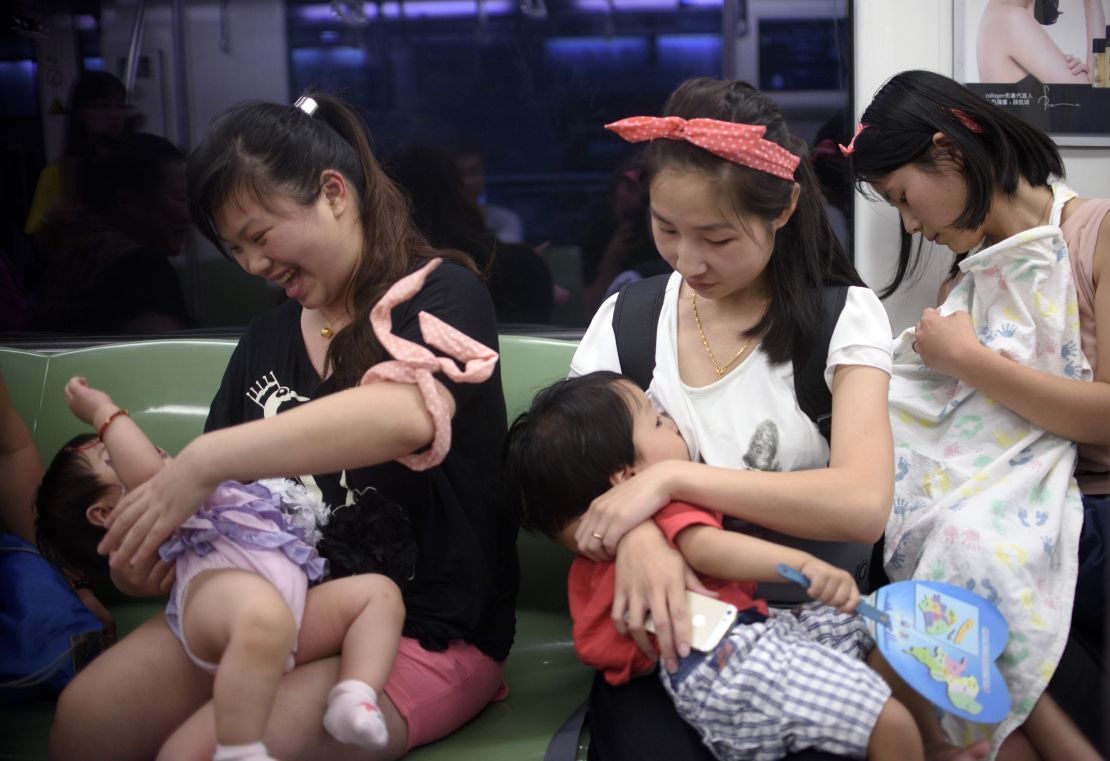Story highlights
Photo of nursing mother goes viral on Chinese social media
Pictures ignites debate over breastfeeding in public
Breastfeeding rates in China below global average
A photo of a woman nursing her baby in a crowded Beijing subway train has unleashed a furious – and some say much needed – debate over breastfeeding in public in China.
A passenger posted the original photo on Weibo, China’s equivalent to Twitter, with the caption: “Let me remind you – this is a Beijing subway not a bus running in your village.”
The snapshot went viral after being reposted by Beijing Tale – a volunteer organization that helps clean up subway flyers. It criticized the woman for exposing her “sexual organs” in public.
But many Internet users condemned the passenger and the organization for taking and sharing an intimate photo, and defended the mother.
“It’d be ideal if she had used a nursing cover, but it’s not a big deal if she didn’t have one. Breasts are…for babies; they are not sexual organs,” Ou Qian, a Guangzhou doctor and a mother herself, said.
“Babies need to be fed when they are hungry. She is a great mom.”
Famous moms who breastfeed
Formula fans
In 2014, fewer than 16% of urban Chinese women exclusively breastfed their babies for the World Health Organization recommended period of six months.
The rate was higher in rural areas – 30% – but still below the global average of around 40%. The reasons stem from a complex mix of culture, commerce and economics.
The Chinese custom of “confining” new mothers to a month of bed rest often puts feeding decisions in the hands of relatives and short maternity leave makes it difficult to continue once a mother is back at work.
A string of tainted milk powder scandals didn’t trigger a shift to breast feeding. Instead, Chinese have sought out foreign-made formula, causing global shortages, and infant formula makers have been criticized for using aggressive marketing tactics.
China has tried to address the problem: In April, Beijing said it was considering a ban on formula advertising and the country has launched a breastfeeding awareness day to take place each May.
But, unlike most U.S. states, China doesn’t have laws that specifically allow women to breastfeed in any public space.

‘Furious’
Connie Chi, a mother of a 14-month-old baby who works in Shanghai, told CNN that she was furious to see the criticism of the woman, and has much sympathy for her.
“When a baby cries, I think the initial reaction of all mothers would be the same. I would feed my baby. I’ve done the same before.”
But Chi said she would also try to cover up, as she says many Chinese are still conservative and exposing breasts may not be as acceptable as it is in the West.
Chi, who breastfed her baby for 13 months, pumped milk at work and found it hard to keep it private and calls for more feeding rooms in offices and public places.
“I had to go to a fitting room and place a stick note on the door, so that people wouldn’t pop in when I was pumping milk.”
Breastfeeding: Why are we still so squeamish about it?

Uproar
The photo taker has since deleted the original post and apologized, as has the volunteer group.
But this has done little to stop the uproar.
“If I saw a pretty woman’s breasts exposed I’d stare, because I’m a man,” commented one Weibo user. Thousands of web users liked the post.
You Shiyou, a social scientist, questioned why men could expose their body while women can’t.
“I hope one day that, neither women exposing breasts nor breast feeding would be a hot topic,” You said.










